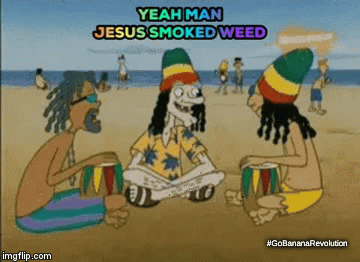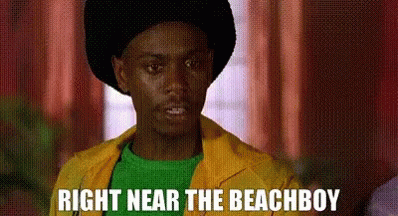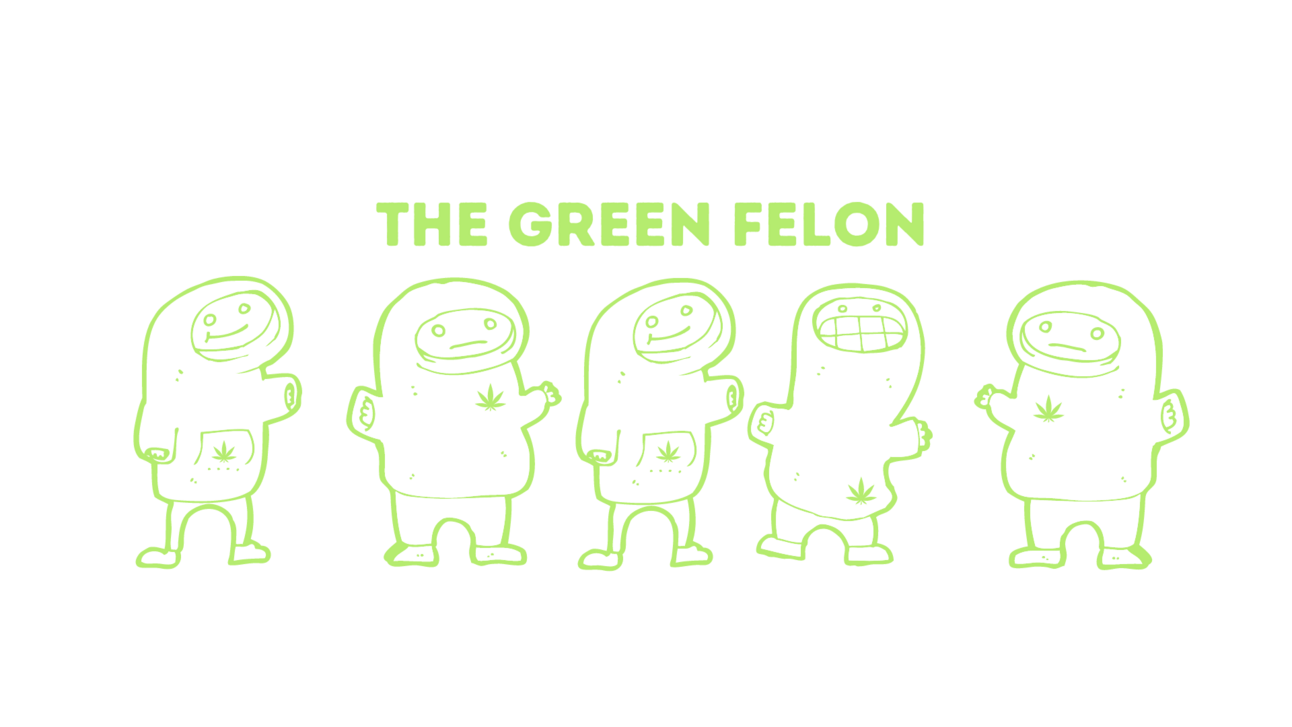
News Highlights ☀️:
Rastafari 🥭 in Antigua & Barbuda have finally gained legal recognition to cultivate and smoke cannabis as a sacrament 🕎—marking a major step in religious freedom and ending years of persecution. apnews.com
Spiritual Justification for Ganja 🎄 Use: Rastafarians interpret biblical scriptures as endorsing cannabis use for meditation and spiritual 🕌 communion, viewing “ganja” as the “holy herb.” africanews.com
Ongoing Harassment in Jamaica 🍌: Despite the Dangerous Drugs Act’s 2015 sacramental clause, Rastafari members in Jamaica still face arrests 👨🏾⚖️ and discrimination when using ganja in religious contexts. jamaicaobserver.com

Quick Read:
🟩 Sacramental Symbolism: Rastafari theology venerates ganja as a divine sacrament used in spiritual rituals and reasoning sessions, distinguishing it from recreational cannabis 🪴 use.
🟨 Colonial Rebellion: Ganja’s ritualistic use in Rastafari evolved as an act of anti-colonial resistance, challenging Eurocentric 🇪🇺 legal systems and oppressive cultural narratives.
⬛ Economic Exclusion: Despite cannabis legalization, Rastafarians face systemic marginalization in the commercial market, receiving minimal representation in global 🌏 cannabis enterprise.
🟨 Cultural Misrepresentation: Mainstream portrayals reduce Rastafari to stereotypes 👳, ignoring its rich philosophical tenets, ecological ethics, and theological sophistication.
🟩Sacred vs. Profane: As cannabis becomes commodified, Rastafari communities confront ethical dilemmas about preserving spiritual integrity ✝️ amid commercial exploitation.

Rastafari and Ganja 🌴: Beyond the Stereotype
For decades, Western media has clumsily caricatured Rastafarian culture as a collage of dreadlocks, reggae 🎶, and perpetual clouds of ganja smoke 💨. These portrayals—often tinged with ignorance and exoticism—fail to grasp the nuanced theological, political, and philosophical dimensions of Rastafari and its deeply intentional relationship with cannabis 🌿. It’s time we roll away the smoke of cliché and spark a conversation grounded in context, culture, and consciousness 🧠.
Divine Herb, Sacred Purpose 🌱
To the Rastafari, ganja is not merely a recreational plant or countercultural symbol—it's a sacrament 🍃. Rooted in Old Testament scripture and ancient Ethiopian traditions, the use of cannabis in Rastafari serves as a conduit for meditation 🧘, introspection, and spiritual awakening 🌄. The faithful cite verses such as Genesis 1:29, in which God proclaims, “I have given you every herb bearing seed,” interpreting this as divine endorsement of natural medicine 🏺.
Where secular societies may categorize cannabis alongside indulgence, Rastafari views it as wisdom-weed—a facilitator of divine connection 🔗. Ganja is often used during “reasoning sessions,” informal spiritual gatherings where brethren explore moral, political, and theological issues 🗣️. In this context, smoking isn’t an escape—it’s an entrance 🚪 into higher consciousness, unity, and enlightenment 🔮.

Colonialism, Criminalization 🚨, and Cultural Resistance
Understanding Rastafari’s embrace of ganja requires a journey through the colonial and post-colonial history of the Caribbean 🏝️. The movement, which emerged in 1930s Jamaica, arose as both a spiritual awakening and an act of political resistance against Babylon—the Rastafari term for oppressive systems 🧱.
Cannabis, criminalized by British colonial law, became a tool of rebellion ✊. Rastafari’s unapologetic use of the herb in defiance of prohibition laws was not only spiritual but subversive. It challenged imperial doctrines, Eurocentric morality, and capitalist control 🧳. While governments demonized ganja as a "dangerous drug," Rastafari reclaimed it as an instrument of liberation 🎓.
Indeed, the persecution of Rastafari for cannabis use—often involving arbitrary arrests 🚓, police brutality, and media defamation—reveals more about Babylon than it does about the herb or the people who revere it. The war on ganja was, and in many cases still is, a war on a way of life 📿.
Sacred Plant, Corporate Game 🎮
The modern cannabis industry has become a dazzling spectacle of innovation, investment, and industrialization 🏗️. Edibles, extracts, and equity portfolios now dominate headlines once filled with arrest 🚔 reports and ganja raids. Yet amid this green gold rush, Rastafari communities—who defended the herb spiritually and politically for nearly a century—are often left economically marginalized 🤲.
Ganja, once a sacred outlaw 🔫, now wears a business suit. Billionaires with no spiritual connection to the plant are awarded licenses, while elders who endured criminalization for sacramental use are excluded from the boardroom table 📉. The commodification of cannabis is not inherently evil—but it is undeniably ironic 🔁.
Many Rastafari find themselves 🔎 caught in an ethical maze: Should they participate in the very marketplace that once persecuted them? Should sacred herbs become branded strains sold in neon-lit dispensaries 📦? Can one trademark a sacrament?
The global cannabis economy is projected to top $100 billion 💶 by 2030, but spiritual leaders and grassroots cultivators who nurtured ganja’s cultural and medicinal legacy see little of that green 💚. In many jurisdictions, there are no provisions for religious use, no subsidies for small Rasta farmers, and no structural acknowledgment of cultural custodianship 🏵️.
Country 🌍 | Legal Status of Ganja 📜 | Recognition of Rastafari Rights 🙏 |
|---|---|---|
Jamaica 🏖️ | Decriminalized (2015) | Sacramental use protected 🛡️ |
United States 🇺🇸 | Mixed (state-dependent) | Limited recognition |
South Africa 🇿🇦 | Legal for personal use | Cultural recognition growing 🌾 |
Canada 🇨🇦 | Fully legalized | No explicit sacramental carveout 🚫 |

The plant may be legal, but the struggle is not over 🪧. Spiritual equity must become part of the global cannabis dialogue, or we risk turning ganja into just another exploited natural resource. Without culturally conscious reform, legalization could become just another chapter in Babylon’s long history of extraction 🛠️.Livity, Ital, and the Holistic Path 🍲
Rastafari philosophy is not just about smoking ganja—it’s about livity, a holistic way of being 🌞. Livity embodies living righteously, harmoniously, and in accordance with the Earth’s natural rhythms 🐳. Ganja is just one piece of this spiritual mosaic, alongside Ital food (natural, unprocessed, often vegan), clean living, and the rejection of Western materialism 💳.
This worldview treats the human body as a temple 🏛️ and the Earth as a sacred garden. Ganja, when used with intention, becomes a sacramental enhancer—not a crutch. In fact, many Rastafari eschew alcohol, processed sugar, or pharmaceuticals, viewing them as poisons of Babylon's system 🍾. Their lifestyle is anti-industrial, anti-colonial, and radically pro-Earth.
Beyond Bob Marley: Breaking the Pop-Culture Spell 🎧
Let’s be honest: most people’s introduction to Rastafari probably came through the hypnotic bassline of Bob Marley’s “One Love” 🎵. While Marley was a devout Rasta and a crucial cultural ambassador, he has been both a blessing and a burden to the movement’s image 🎤. His mainstream popularity reduced a rich and revolutionary theology into a feel-good soundtrack for Western escapism 🏄.
Pop culture, in its quest for digestible iconography, has airbrushed Rastafari into a ganja-themed accessory—ironically commodifying what is fundamentally anti-consumerist 🧢. The sacred herb, the dreadlocks, the red-gold-green colors—all have been repackaged into festival costumes and novelty bongs 🚬.
True respect for Rastafari requires moving past aesthetic admiration and engaging with its ideas 💬: spiritual sovereignty, pan-African liberation, ecological ethics, and community resilience. Ganja is not a punchline or a product. It is a plant of prophecy.

Toward a Higher Understanding 🪁
If we are to dismantle the stereotype of Rastafari as “just stoners with reggae beats 🎸,” we must expand the narrative. Ganja in Rastafari is not recreational, but sacramental. It is not escapist, but revolutionary. It is not merely smoked, but revered 🕊️.
To decolonize cannabis means recognizing and respecting those who upheld its sanctity long before it was lucrative 🪙. It also means advocating for spiritual freedoms, cultural protections, and equitable access in every cannabis-related law, policy, and dispensary license issued 🧾.
The stereotype is not only inaccurate—it is an injustice. And like a spliff passed in silence, it’s time we share the real story 👀.
What would happen if every dispensary CEO 🧑🌾 had to sit through a Rasta reasoning session before getting a license—would ganja become sacred 🚼 again?
❔ Ask Why ❓

The information provided in this newsletter is for informational purposes only and does not constitute medical, legal, or professional advice. Always consult with a qualified professional before making any decisions based on the content shared here.

